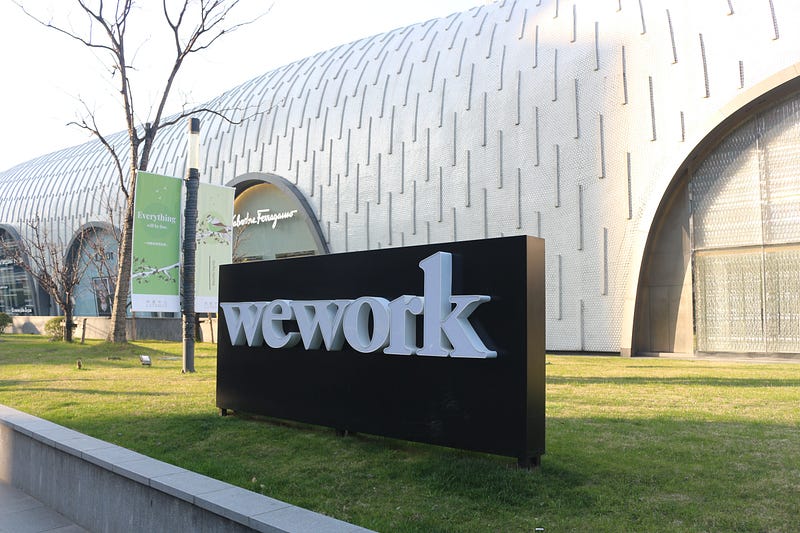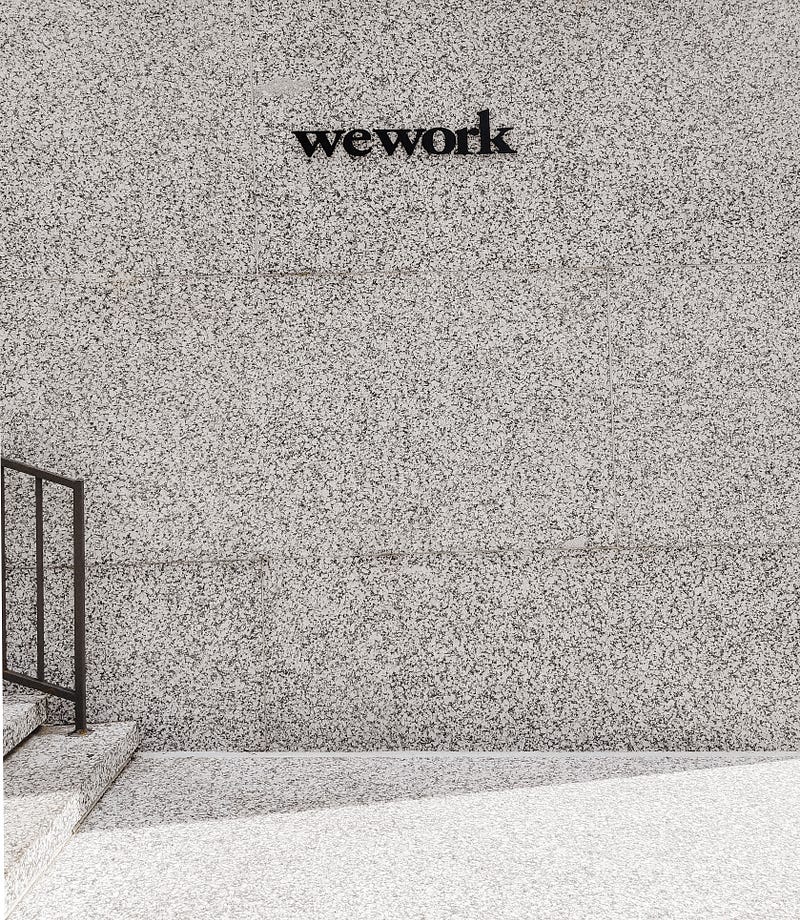WeWork, the once-mighty giant of flexible workspaces, is on the brink of a cataclysmic bankruptcy. This revelation, whispered through the insider grapevine, has sent shockwaves across the financial landscape. Get ready for a rollercoaster of hubris, colossal debts, and a spectacular downfall.
WeWork's Ascent to the Summit
Back in 2019, WeWork was living the high life with a valuation of $47 billion. Investors were throwing money at them, drawn to the idea of shaking up the traditional office space. Little did they know, the seeds of WeWork's unraveling were already planted.
The Icarian Flight
Fast forward to 2023, and WeWork is making headlines for all the wrong reasons. Plans to file for bankruptcy are in the air, a fall from grace echoing the ancient myth of Icarus. The source of this impending financial tragedy? A monstrous debt pile and losses that seem insurmountable.
Shares, oncesoaring like a phoenix, took a nosedive of 32% in extended trading, marking a mind-boggling 96% plunge over the year. The Wall Street Journal's ominous report is like a requiem for a company that was once the poster child of shared workspaces.
The Symphony of Debts and Losses
As the curtains rise on WeWork's financial intricacies, the numbers paint a bleak picture. A net long-term debt of $2.9 billion as of June, coupled with a jaw-dropping $13 billion in long-term leases, portrays a company drowning in financial obligations. The commercial real estate sector, already battered by rising borrowing costs, is now the battleground for WeWork's financial duel.
In a desperate attempt to dodge the impending catastrophe, WeWork engaged in a delicate dance with creditors, negotiating a temporary postponement of debt payments. Yet, with the grace period ticking down, the company finds itself at a crossroads, with bankruptcy looming like the Sword of Damocles.
The Tragic Reversal
The Shakespearean tragedy of WeWork filing for bankruptcy is a stark reversal of fortune. From a private valuation of $47 billion to the brink of insolvency, the narrative oozes with irony. SoftBank, the benevolent patron, has seen its billions sink into the abyss, a bitter pill to swallow for the Japanese conglomerate.
The Unraveling Continues
WeWork's woes didn't cease with the shelving of its IPO plans in 2019. Even after finally going public in 2021 at a considerably reduced valuation, the company continued its descent into financial chaos. SoftBank, unwavering in its support, became a financial lifeline, yet the losses persisted.
The exodus of top executives, including CEO Sandeep Mathrani, painted a grim picture. In August, WeWork raised "substantial doubt" about its ability to continue operations—a harbinger of the impending storm that has now materialized.
The Epilogue of Uncertainty
As the final act approaches, WeWork stands at the crossroads of uncertainty. The once-booming disruptor now faces the grim reality of bankruptcy, a fate that seemed unfathomable in its heyday. The echoes of its ambitious business model, once celebrated, now resonate with skepticism.
In the grand theater of business, WeWork's saga serves as a cautionary tale. A tale of unchecked ambition, imprudent financial decisions, and the perilous dance between success and failure. As the curtains fall on this chapter, the financial world watches with bated breath, wondering if WeWork's tragedy is an isolated incident or a harbinger of larger economic tremors.
FAQs
What prompted WeWork to consider bankruptcy?
WeWork's contemplation of bankruptcy stems from its struggle with a massive debt pile and hefty losses, leading to a financial crisis.
How much has WeWork's valuation dropped this year?
Shares of WeWork fell a staggering 32% in extended trading, marking a jaw-dropping 96% drop in valuation over the course of this year.
Where is WeWork contemplating filing for bankruptcy?
New York-based WeWork is considering filing a Chapter 11 petition in New Jersey, according to reports from the Wall Street Journal.
What agreements has WeWork made with creditors?
WeWork has entered into an agreement with creditors for the temporary postponement of payments for some of its debt, as the grace period approaches its end.
What led to the downfall of WeWork's IPO plans in 2019?
WeWork's IPO plans in 2019 imploded due to investors' skepticism over its business model of taking long-term leases and renting them for the short term, coupled with concerns over substantial losses.


Comments
Post a Comment